Written by: on April 23, 2018
Emily, our Marketing & Communications Manager, was lucky enough to visit Clue’s HQ in the heart of one of Berlin’s most vibrant areas, Kreuzburg.
Clue is a revolutionary female health app that focuses on tracking the whole menstrual cycle in an unique scientific way. Clue was founded in 2012 and since then has attracted 10 million users across 180 countries.

Clue’s mission is to remove the stigma surrounding female menstruation and empower people by providing them with more knowledge on female health, using a scientific approach. Their app is something that we value at InnovateHer, all of our team regularly use it. We interviewed Marija Vlajic Wheeler, a Data Scientist who has been at Clue for 3 and a half years now, to find out more…
It’s a fascinating story that’s been told many times but one that’s definitely worth retelling. Our Founder Ida Tin was in her 20’s when she realised that a lot of the birth control options that were available to her were not viable, for instance the hormonal birth control options didn’t work very well for her.
That was around the time when the iPhone was first released and she thought it would be amazing and useful if we could have an app that would tell you what part of your cycle you’re in, or if you’re likely to get pregnant today or not. Out of that very personal need of Ida’s, Clue was born. From that initial idea, it grew to be a lot more than that – for instance the app tells you how your cycle may be affecting you today amongst many other features.
I’ve very much lived Clue’s mission which is; to enable people around the world to benefit from the knowledge of female health. This means improved knowledge about their own bodies and recognising what certain patterns mean for you, but also knowledge about female health and the wider biology more generally, because education on this is not widely provided.
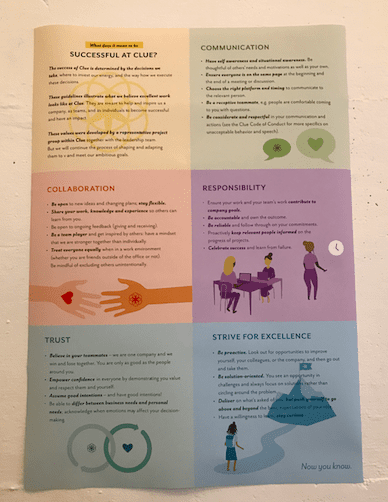
There are things that I learn through reading blog posts that Clue puts out, because we have an amazing content team, and I just think ‘I should have already known about this’. That was one of the things that Clue made me question when I first started using the app, through tracking and reading the infotexts there. But Clue also gave me a sense of empowerment like ‘oh yeah, this is how these things work’ or ‘this is why I feel like I’m going crazy today!’ and it’s not a personal failure, it’s just a normal thing. I think that it’s very powerful when people first start to understand more about their own bodies.
There are a couple of ways where I feel we’re different. I think one of our old taglines was ‘beautiful, scientific and not pink’. Branding wise we’ve moved slightly away from that, but partly from the design perspective it’s supposed to be easy to use and promote happy feelings. That was one of the goals of our original advisors.
We say its scientific because we don’t want to be your ‘sassy best friend’’ and have a tone that’s patronising or too chummy, we really wanted it to come from the place of well informed authority and empathy.
We want to provide the information in a scientifically accurate way. You see a lot of the other period tracking apps covered in flowers and butterflies, and if someone likes flowers and butterflies it’s fine, but my calendar and my music player isn’t covered in flowers and butterflies, so why would my period tracker be? It all boils down to the respect for the user and the respect for the user’s intelligence. So we want to deliver information that’s scientifically accurate and in a way that’s respectful.
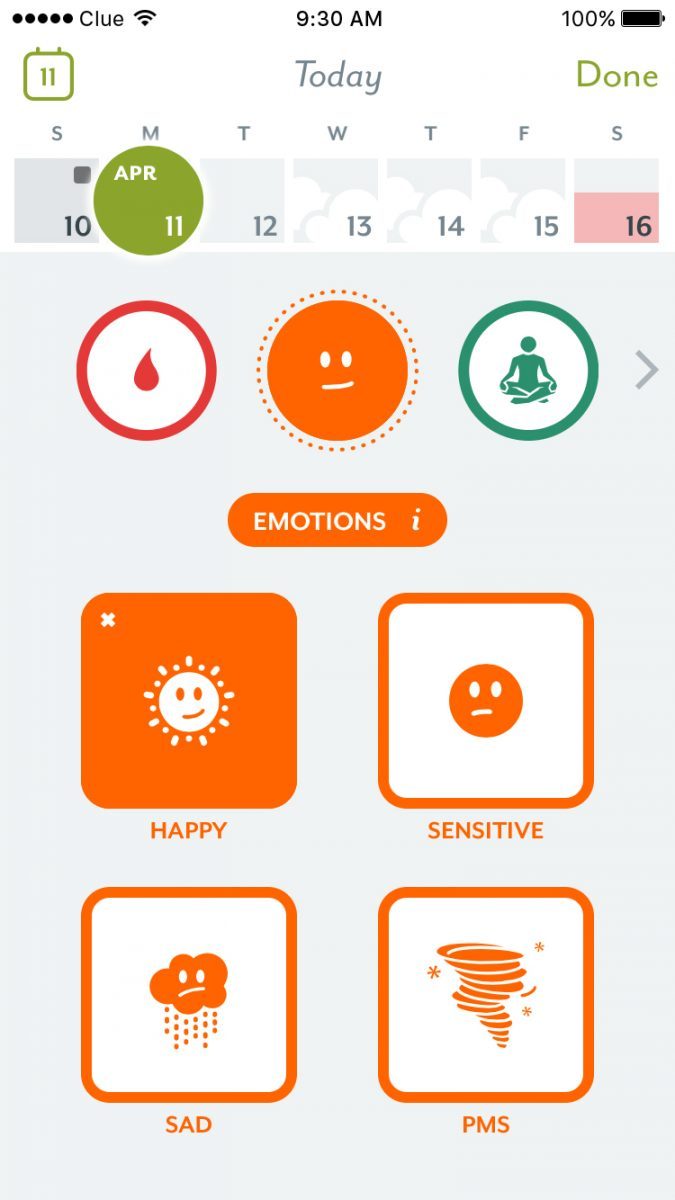
We really want to give something back and allow the researchers to do their work with the data we collect. Which will hopefully provide us all with more understanding about female menstrual health. We work with between 5-10 specific scientific institutions, like Stanford, Columbia, Oxford and the University of Washington, to achieve this. We hope that one day our work with them will start to bear fruit. It’s important that we give back and provide access to the amazing data-set that we have, so that ends up being multiple organs of magnitude larger than the data-sets people have got through traditional methods, which creates more impact.
It’s important to teach them about any aspect of their health but especially their menstrual health because there’s so much stigma and shame surrounding it, which results in them not getting enough knowledge about it. That perpetuates the stigma and shame even more so it’s important to break those barriers.
Once you start learning about menstrual health, you realise just how much of your life it effects. Coming from a personal point of view there’s a true sense of empowerment when you realise that these things that happen to you are just a normal part of your cycle.
The fact that you feel your hair is terrible one day or that anything anyone says to you will make you cry is just part of a normal hormonal cycle that will pass. Knowing this will prevent you from thinking that you’re a failure, when obviously you’re not. It’s important to get teens to recognise this. Being armed with this knowledge will allow you to advocate for yourself in a way that will also protect your own health.
I think out of the 50 people we have it’s split around 60% in product development and engineering and 40-50% in brand, marketing and content. That’s the part that you maybe don’t see as often in tech start-ups, but for us having a strong brand and voice was important from the beginning.
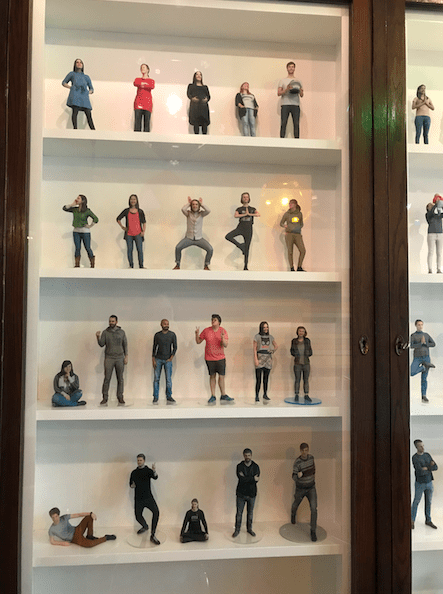
Within the product and engineering teams we have a range of client developers; including iOS developers, Android developers, back-end developers, data scientists, business developers and a couple of product people, managers and designers.
Every company is different but here we have a whole range of roles. A lot of the things that we do are data heavy, but then we need everybody else to actually make all those features a reality. We’ve also just released a new website – helloclue.com – where we collated a lot of the stuff we had posted on the blog before. It’s now collected in one centralised place covering basic menstrual health information.
Because not one person can speak for every experience out there. Because when you have people whose experiences and voices differ from your own the output is better. Our user base is very diverse and to be able to speak to that diverse user base, I think it’s important that we have a very diverse team making the app.
I’ve never had the impression that we have problems attracting men to work here. I think a lot of male employees are very proud to work here and they enjoy the reaction they get when people ask where they work! I don’t have the exact numbers but I think we do get a more gender diverse set of applicants than other tech companies.
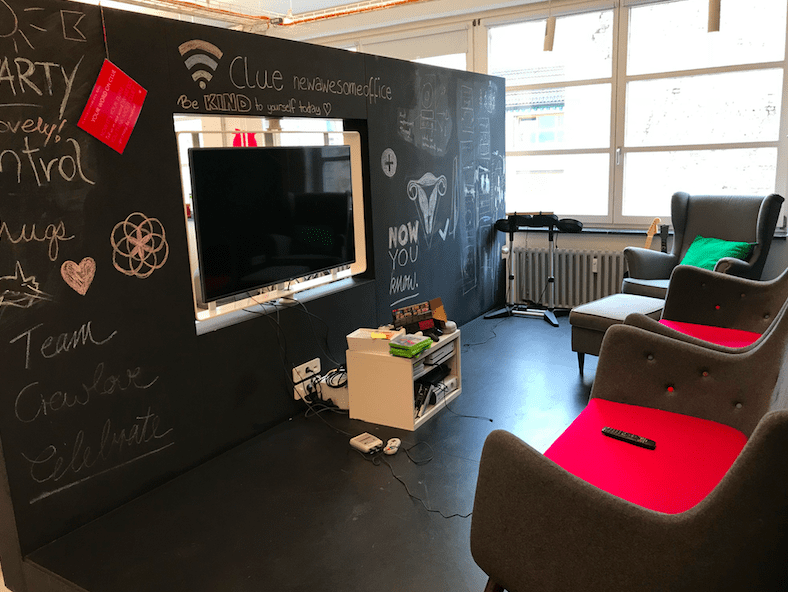
Even if you fixed the ‘pipeline problem’ of the gender imbalance in tech, and even if we do get a lot more applicants who identify as women, sexism can be so pervasive. It’s important to be aware of how bias and sexism can affect retention in the industry. There’s still a lot more work to do around what’s embedded in the culture of our companies.
One of our founders was based here and around that time Berlin was starting to become a bit of a start-up hub, so having a European base made sense to them.
Berlin does have a decent eco-system, there are a lot of tech companies and a lot of events. 10-15 years ago you had some start-ups but more music related start-ups. It’s really evolved since then and the tech sector is thriving here.
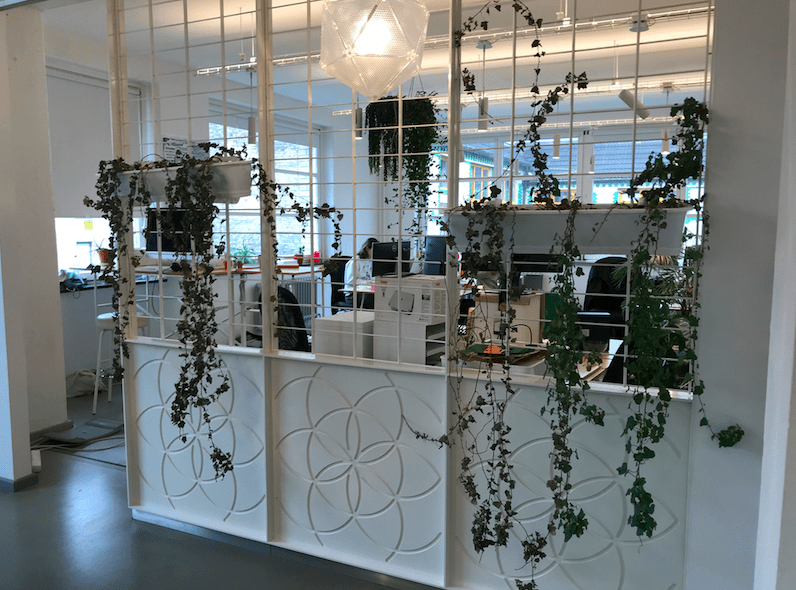
It’s basically a programme that started a couple of years back to recruit Clue users – the ones who care about the topic of menstrual health – and start the conversation among them. It started as a way for them to organise things in their own communities, furthering the causes that Clue fights for on a more global scale.
We have a lot of ambassadors who organise talks or take menstrual supplies to women in prisons and take action along those lines. The main idea was to further the conversation and involve the people who want to engage, to see if we can empower them to engage their local communities too.
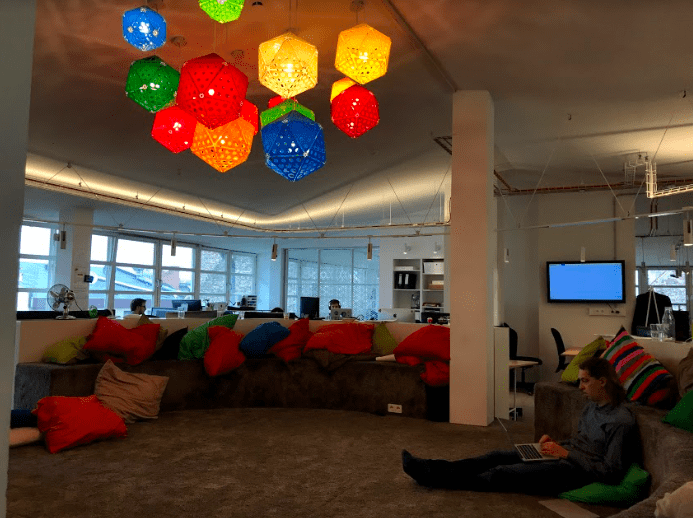
Clue is available to download on the App Store & Google Play.
Follow Clue on Instagram, Twitter, Facebook and YouTube.
Back to news and views